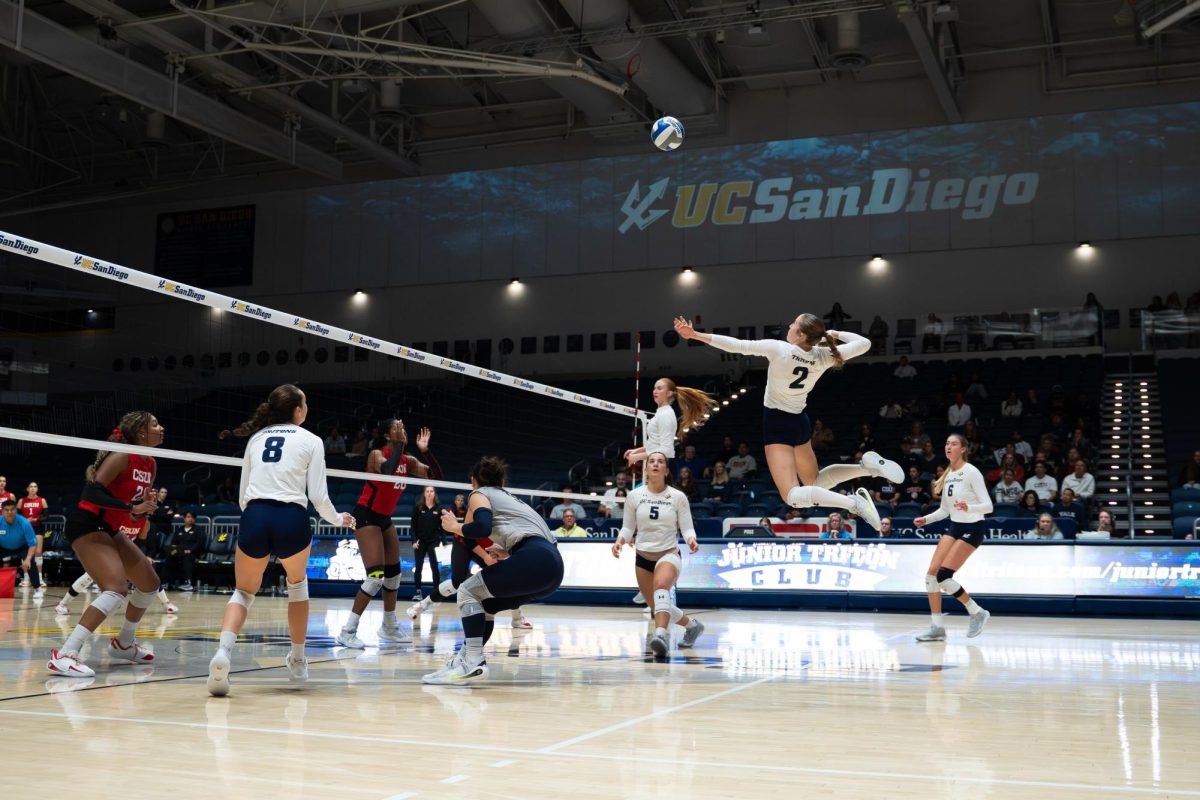In 1992, President Bill Clinton took office with only 43 percent of the popular vote. Independent candidate Ross Perot took the heat for drawing votes from his opponent, President George H. W. Bush.
In 2000, President George W. Bush failed to capture the popular vote and won only a narrow plurality in Florida. Green Party candidate Ralph Nader was blamed by many for splitting the vote and giving Bush the White House.
In 2002, Jenn Brown was elected UCSD’s A.S. president. Her vote total was far less than that of her other four opponents combined. Campus political pundits argued that independent candidates and a smaller third party, New Wave, siphoned votes from Brown’s main opposition, a slate of candidates called Action. As a result, Brown’s Students First! slate swept the elections, winning nearly every seat for which it fielded a candidate.
Fortunately, the subsequent A.S. Council had the foresight to realize the problems inherent with a voting system that allowed candidates to get elected with only marginal support. The council commissioned a task force to analyze the problem. Comprised of representatives from each college council, with input and consent from the College Republicans, College Democrats and Campus Greens, the task force proposed a new, fairer electoral system: instant runoff voting.
The A.S. Council passed the proposal overwhelmingly and met only nominal opposition when the prospect of funding the system arose last quarter.
Alas, the council’s resolve faltered in the face of its own financial missteps and desire to maintain the status quo.
Having failed to anticipate this year’s budget shortage, the council now finds itself needing to cut student programs already suffering from insufficient funds. Although the council had already approved a one-time expenditure from its reserve account last year, it has suddenly developed a sense of misguided fiscal accountability and reversed course, cutting the money instant runoff voting needs to survive.
Politics plays more than a passing role in the decision to continue undemocratic elections. Although the recent decision to table the legislation indefinitely was unopposed, Students First!, the political party that traditionally has served a narrow — but loyal — campus constituency of student organizations, stands to gain the most from continuing the current system.
Predictably, some opposition to instant runoff voting has come from Students First!-affiliated councilmembers, like Revelle College senior senator Ted McCombs. Some question the amount of research that has gone into applying this voting system to A.S. elections at UCSD.
Yet, the task force met for an entire quarter, surveyed hundreds of students, conferred with most college councils, consulted voting experts at UC Davis and the nonprofit Center for Voting Rights and Democracy, and chose instant runoff out of 10 possible methods of voting. Most (57 percent) UCSD students surveyed preferred instant runoff out of the voting systems presented. Eighty-one percent felt it represented them well, compared to only 58 percent for the current plurality system. After a one-minute explanation, 93 percent of the students understood the concept.
Instant runoff voting has the support of the students and the previous A.S. Council. But instead of protecting the integrity of UCSD elections, this council has spent itself into a deficit. When the council allocates nearly $40,000 to pay its own salaries, it cannot take the moral high ground and cry “fiscal responsibility!” when killing a project that costs less than half that much to make our elections fair.
The council should revisit this issue and allocate the money from reserves before it is too late, lest UCSD find itself faced with another costly runoff election or, even worse, a council elected by a minority.
[Ed. note: Daniel Watts ran for Earl Warren College sophomore senator on the New Wave slate in 2002.]







